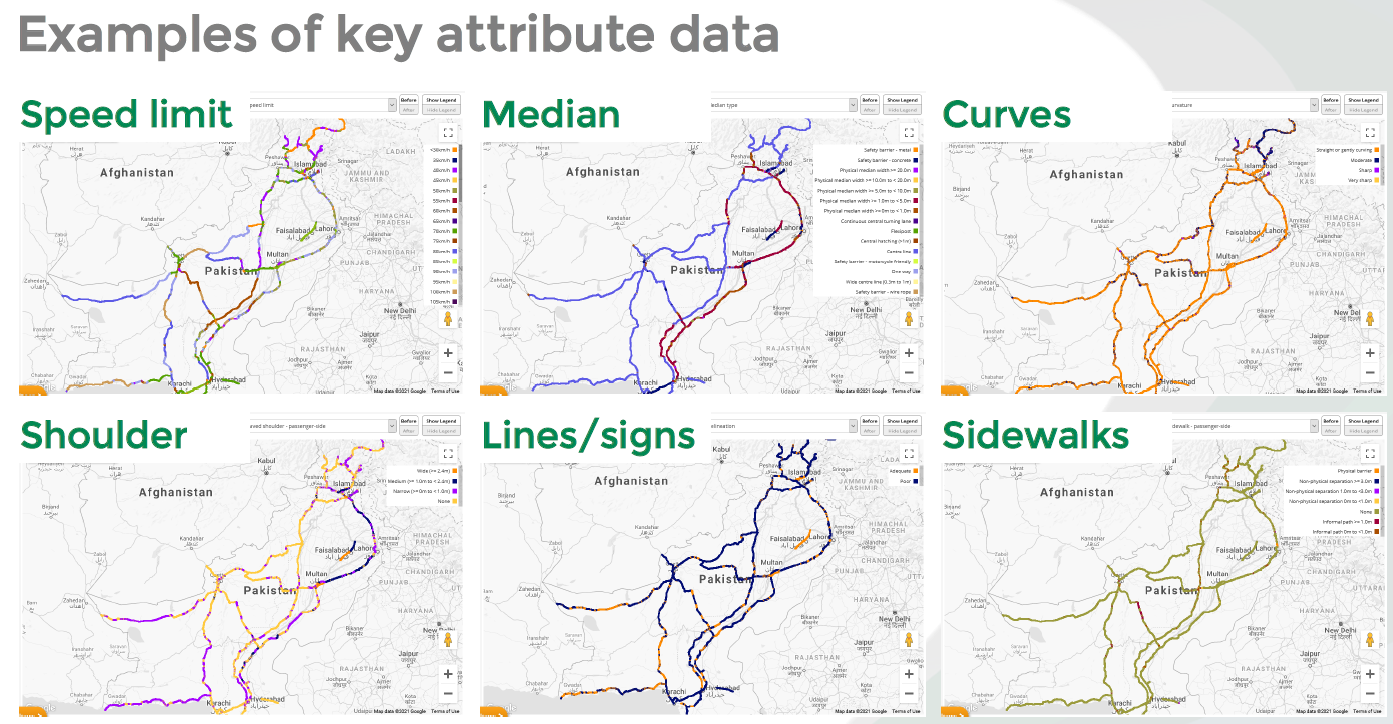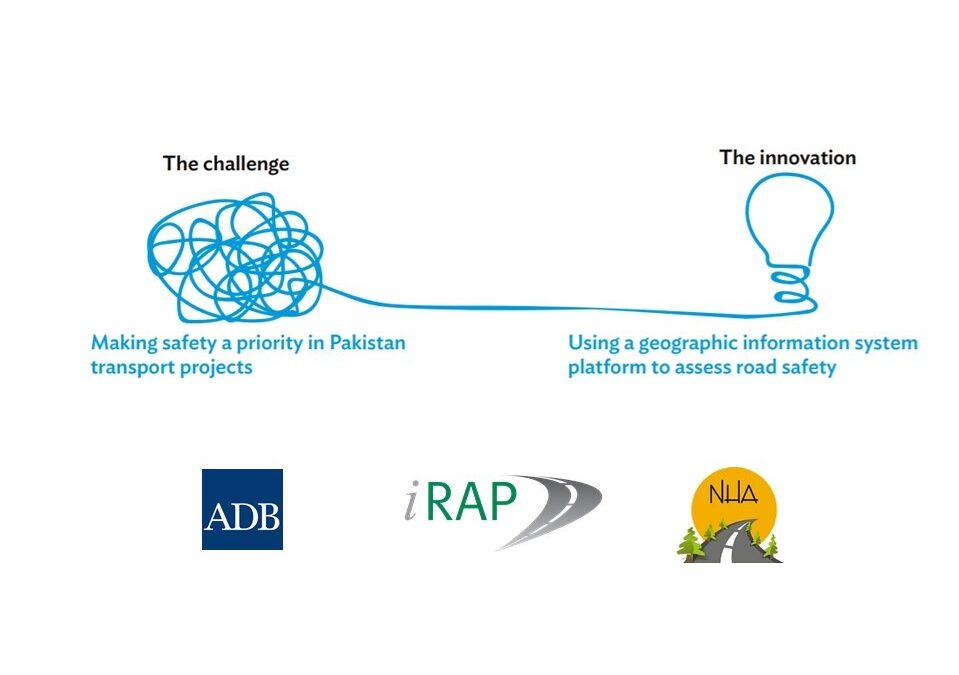Asif Azam, Deputy Director of Road Management at the National Highway Authority (NHA) of Pakistan and Greg Smith, iRAP Global Partnerships Director recently presented at the Asia Pacific Road Safety Observatories (ASPRO) Webinar on outcomes in Pakistan arising from the Asian Development Bank Scaling Up Innovative Road Safety Operations Project across 7 countries.
Read what they had to say in the following ASPRO blog reporting on the “Meeting the Global Road Safety Performance Targets: Case Studies from Pakistan and the Philippines” webinar:
In 1959, a Volvo engineer invented the ubiquitous three-point seatbelt that keeps us safe on the roads everyday. The carmaker boldly made the patent available to all, even their competitors, speeding up mass adoption and undoubtedly saving millions of lives.
When it comes to road safety, innovations like these are just one piece of the picture. Today, with rapid urbanisation in the Asia Pacific–typified by congested cities heaving with vehicles–policymakers are grappling with the challenge of cutting deaths due to road accidents.
Besides the senseless and preventable loss of lives, road deaths take a huge toll on economies. For instance, the International Road Assessment Programme (iRAP) estimates that road fatalities are costing Pakistan US$2.3bn annually.
“This is a very alarming situation, and this was where we started developing the Pakistan road assessment programme,” said Asif Azam, Deputy Director of road management at the National Highway Authority (NHA) of Pakistan. He was speaking at a recent knowledge sharing webinar by ADB Transport, alongside Greg Smith, strategic projects lead of iRAP.
The intent was to “streamline the investment or implementation of life-saving countermeasures”, Azam continued. Working with iRAP, which provides a globally-recognised road safety assessment tool, the highway authority began with risk assessments of the vast network of roads and highways criss-crossing Pakistan.
Smith and the iRAP team collected data by taking videos of roads and recording over 50 road attributes that can contribute to higher risk of death and injury. These include “speeds on the road, the number of traffic lanes, whether there are line markings, sidewalks, pedestrian crossings, curvature,” according to him.
All these data go into ViDA, a system that calculates star ratings for roads based on their risk factors, with one star being the highest risk and five stars being the lowest. “Basically, we want designs to achieve at least a three-star rating,” said Smith.
With the ViDA system, the data can be visualised with multiple layers and filters. Let’s say we want to assess a road’s run-off risk: the system analyses data on its speed limit, curves, road shoulders, and other factors. “We can actually see that there are 362 high risk locations that come up as a result of that filter across the 10,000 kilometres of network,” Smith pointed out.
Now, Pakistan’s highway authority can make informed decisions on how to improve the star rating and subsequently the safety of roads. Smith continued, “Should you install pedestrian crossings, for example, improve the line markings, or improve the paved shoulder?” iRAP gave them an economic analysis of various options based on their budget, and advice on “the best investment to improve safety”.
The next steps for the authority are to “include road safety right from the planning stage” and “develop short-, mid- and long-term plans to achieve the target of three-star or better roads by 2030”, according to NHA’s Azam. Moving forward, the focus is also on making data collection a priority “for sustainability of the system”; and ensuring that training is a “regular feature” for NHA staff and other engineers, he concluded.
Road safety is an ongoing effort globally, and is just as much about the built environment as it is about changing behaviour. Pakistan’s example shows how data analyses and star ratings can lead to safer roads for its people.
About the Project:
The Asian Development Bank Scaling Up Innovative Road Safety Operations Project was completed at the end of last year and led to the star rating assessment of over 10,700km of roads and nearly 450km of road designs, along with capacity building in China, Fiji, Lao, Maldives, Mongolia, Pakistan and Vietnam.
Read more on the project on page 19 of the Unlocking Innovation for Development Action Update Report: What Worked and What Didn’t for ADB’s First Innovation Regional Technical Assistance Project. The ADB engaged iRAP to conduct safety assessments for projects under five ADB loans worth over $60 million in Georgia, the Lao People’s Democratic Republic, Mongolia, Pakistan, and Vietnam. The team has directly supported regional operations in the transport sector through road safety assessment activities that influenced the design and implementation of ADB-financed transport projects. In Pakistan, the technical assistance was used to train engineers and consultants in road assessment, using the iRAP model to develop the Pakistan Road Assessment Program (PAKRAP 2017–2019). This will support road safety activities by Pakistan’s National Highway Authority and enable large-scale road assessments and promote the cause of road safety.

Slide from APRSO presentation

















